News
The EU and Mauritius’ dying corals
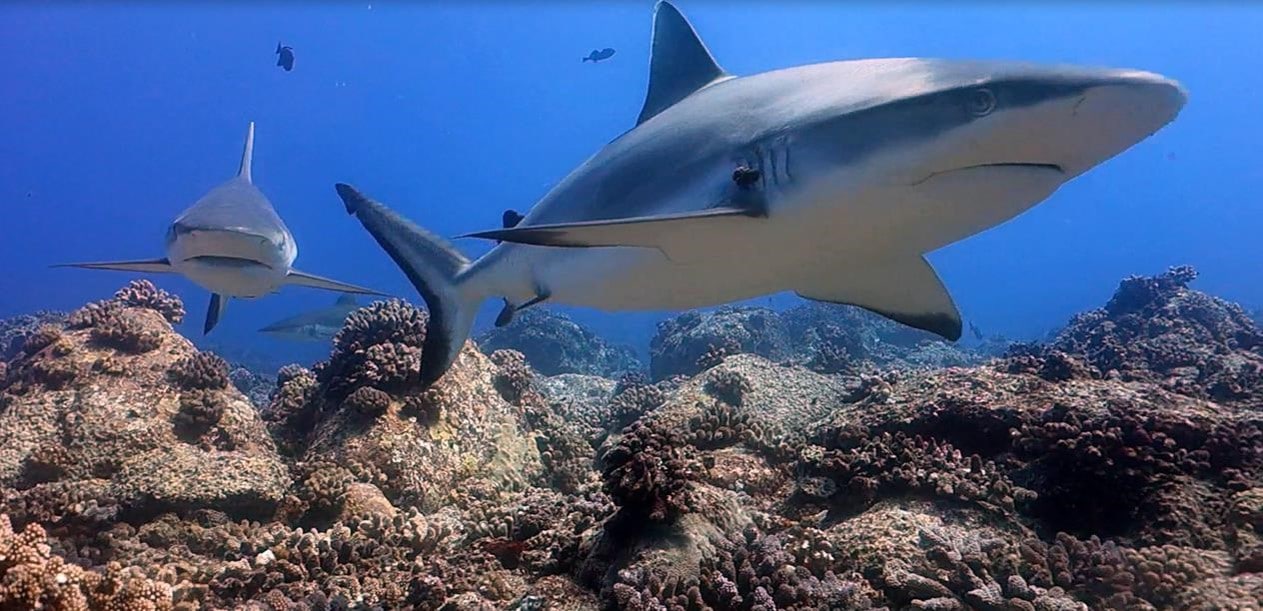
Mauritius is the world’s largest Oceanographic state, and owns the fishing rights to most of the Indian Ocean. And its world famous coral reefs are dying…
In 2017, Mauritius renewed the Europeche agreement with the EU.
Mauritius does not have the policing resources to protect its territory, so under this agreement, the EU is responsible for protecting the Mauritius territorial waters in exchange for fishing rights.
Initially the EU Nations agreed to process their fish in the Princes Tuna plant in Port Louis while Mauritius reserved the right to catch its own fish in its own waters. Sadly, certain countries found it cheaper to take the fish to their own factories, leaving Princes Tuna idle for part of the year.
In 2002 Japan built a fishermen training centre in Point aux Sables, and began to train Mauritius fishermen in trawler fishing.
The owners of Princes Tuna Ireland, Blythe Limited (IBL) – an internationally listed company – expanded their fish processing plant in Port Louis. The Mauritius Government extended the Port Louis harbor.
In 2018, Japanese lend-lease trawlers arrived to catch tuna for processing in the Princes Tuna factory.
The slaughter began, together with the destruction of the livelihoods of thousands of Mauritius citizens who had no idea what happened to their marine based businesses.
Stories of holds full of sharks, marlin, bill fish and sailfins were told in the dive centre by shocked divers with jobs in the harbor who were appalled at the slaughter. Baby sharks are openly sold in the Port Louis market.
There is nothing in the agreement that abrogates EU responsibility for indiscriminate fishing under the Europeche contract.
The Knock on Effect
The subsistence fishermen who catch fish for the local market for companies like Bella Amigo can no longer catch pelagic fish and tuna. They are now netting reef fish.
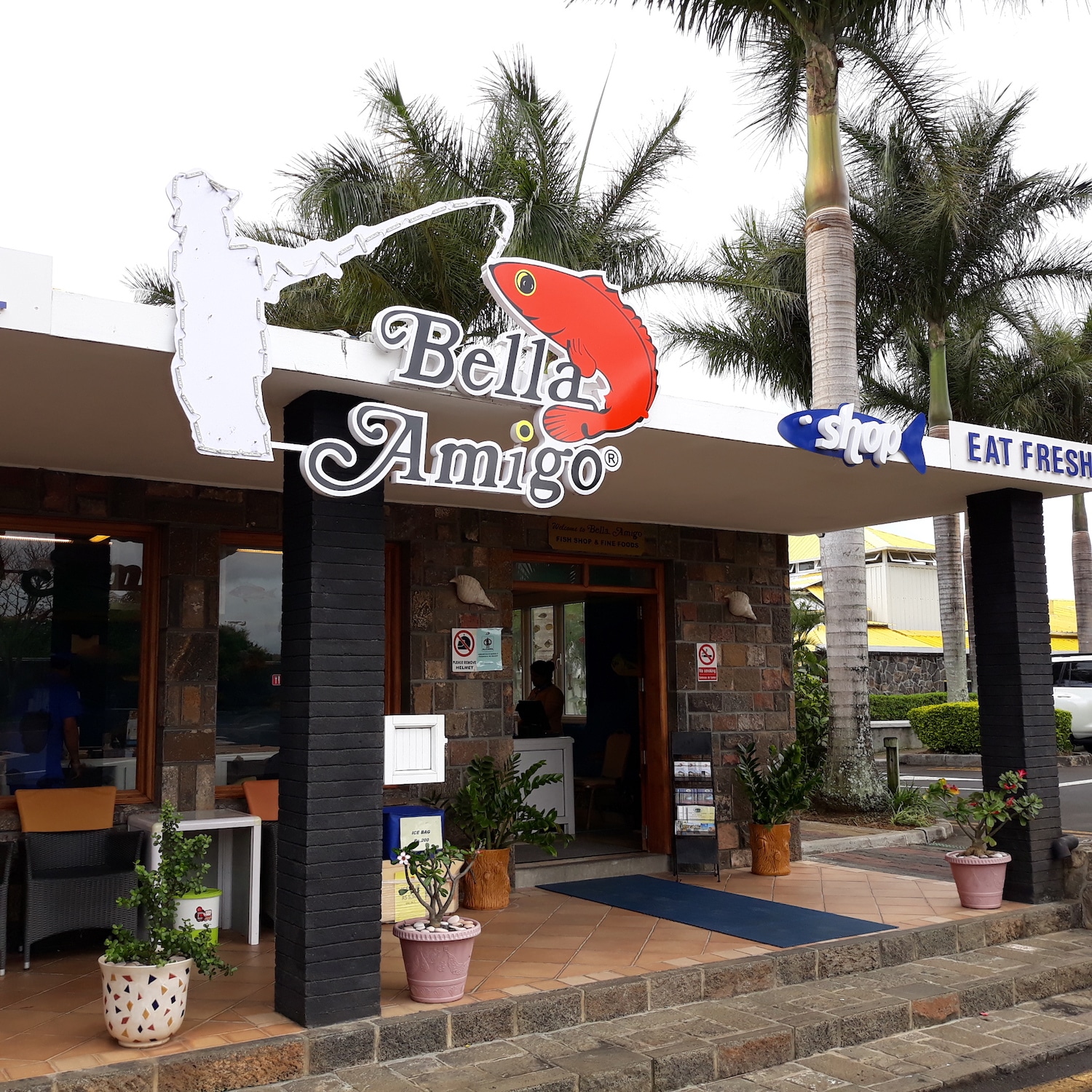
Bella Amigo – a Local Fishmonger.
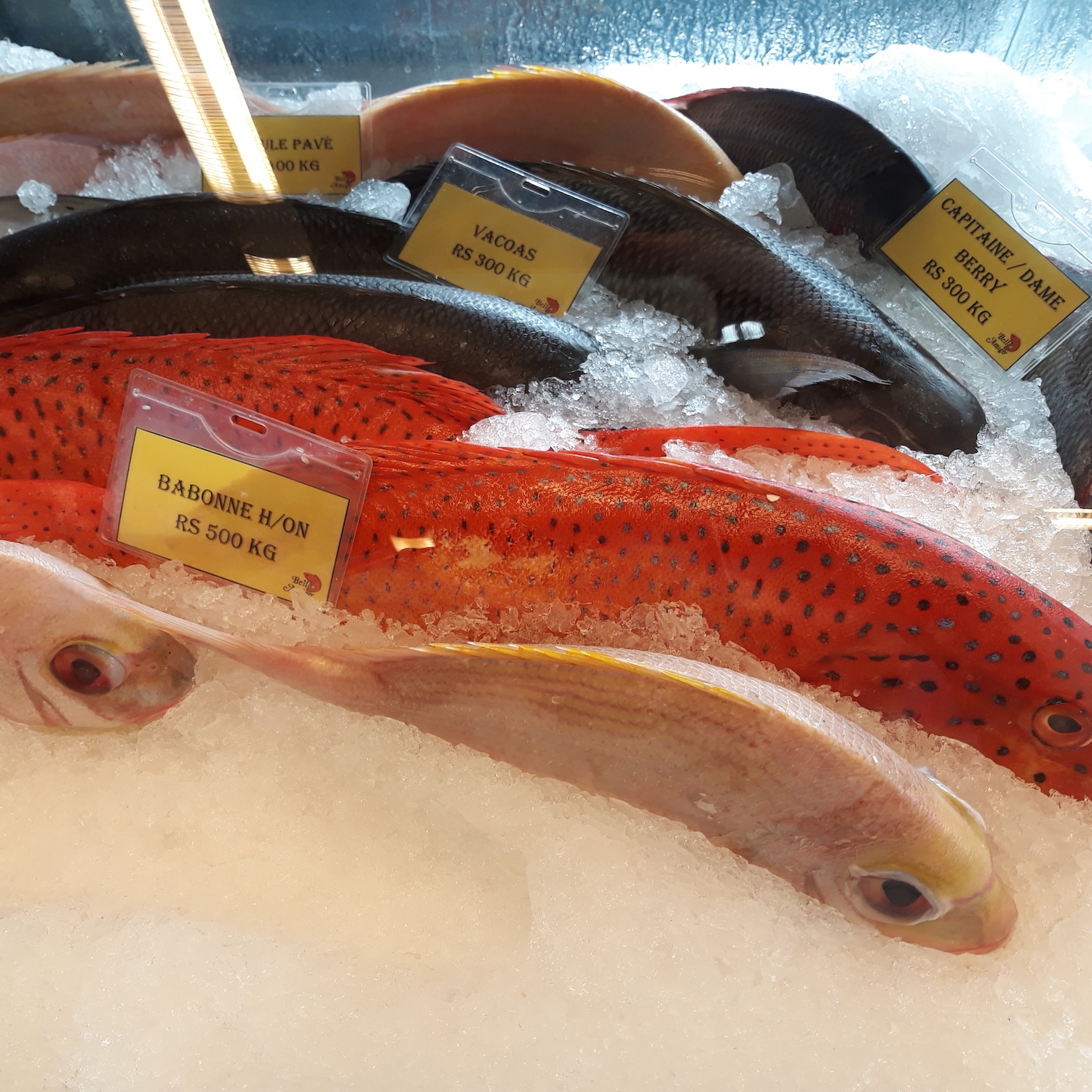
Now selling reef fish.
Sadly the fish they are selling are the fish that eat algae and the new born corals are smothered in five different species of algae.
Diving in the North of Mauritius is still superb with healthy reefs, growing corals and plentiful fish life. There is easy access to the Northern Islands, where the reefs are still thriving.

Round Island where corals thrive. Too far for subsistence fishing nets to be economic.
It is extremely satisfying to honour the 23 fishermen in the North who stopped fishing and took the Mauritius Government incentive of Rs 450 000 to give up their nets and Rs 250 000 to surrender their licenses and thereby allowed the Northern Reefs to re-grow.
Perhaps if this incentive was increased the rest of the Island there would be less problems. Fishermen, who are now struggling to meet their quotas are given a higher incentive, possibly a pension, and the right to apply for jobs as skippers or to enter other marine industries which will allow the reefs to regenerate.
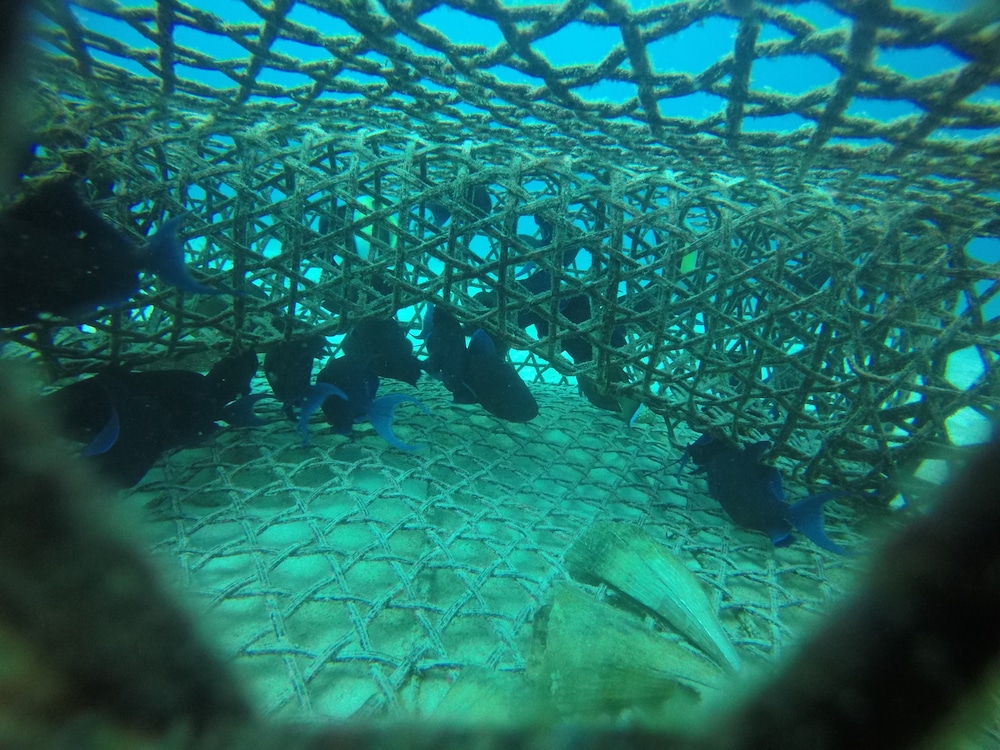
Odonus Niger (Triggerfish) in a trap. They feed on zooplankton as well as sponges.
Our Marine Biologist says this:
“Species diversity is crucial. Sadly the fish species that are being targeted are crucial to reef survival.
While parrotfish are especially important for reefs, a variety of herbivores are needed to help control algal growth. For example, surgeonfish eat algae that parrotfish do not like.
Grazers include most rabbitfishes, butterflyfish, small angelfishes (all Centropyge species), and many species of surgeonfishes (all Zebrasoma and Acanthurus species except those that feed exclusively on plankton or are grazers/detritivores). Grazers/detritivores include Acanthurus species that feed on a combination of epilithic algal turf, sediment and some animal material.
Grazers regulate the effects of unwanted algal blooms resulting from phosphorus pollution in marine ecosystems.”
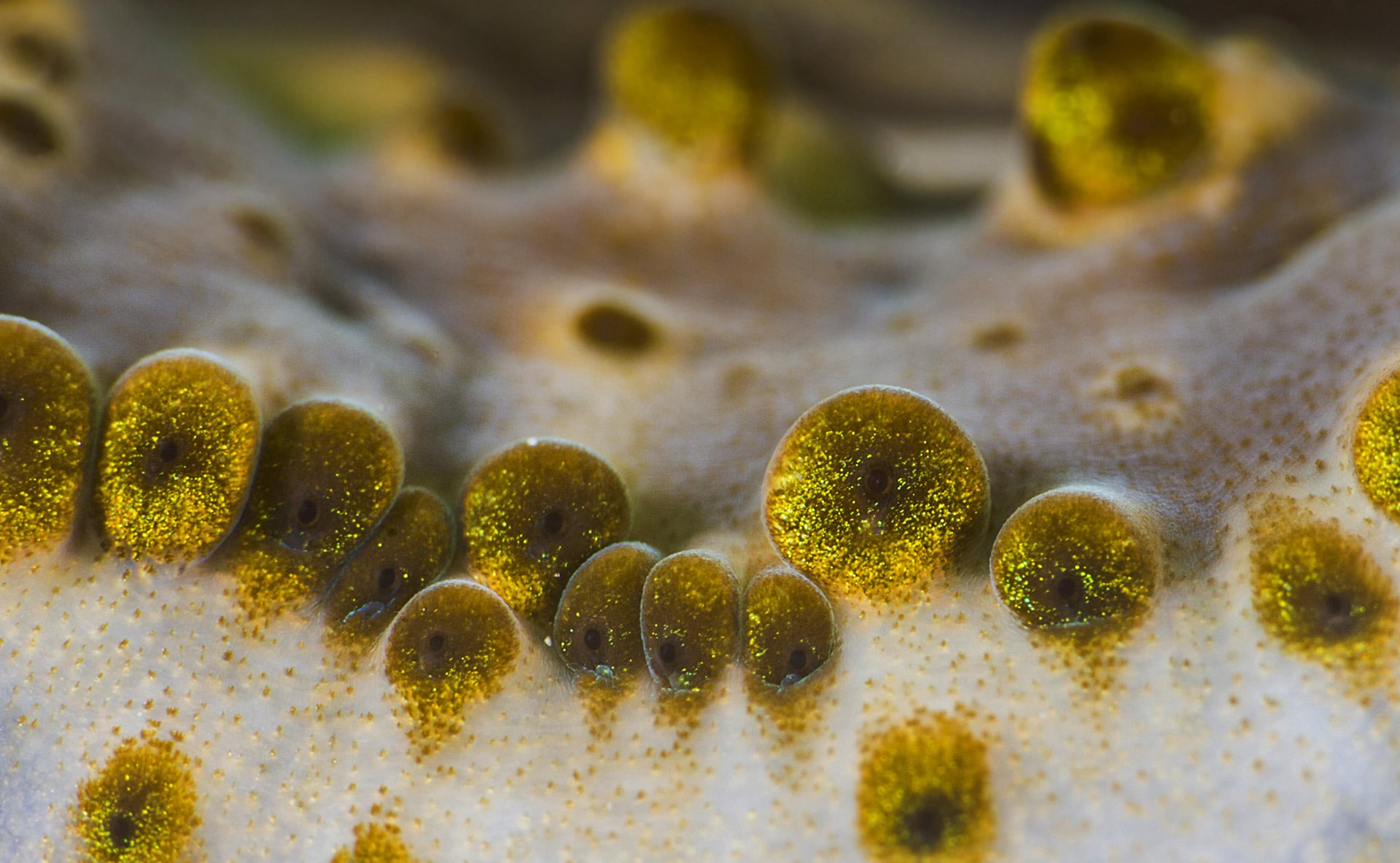
Eggs, and millions of tiny fish are hatching in the algae infected areas. Left to grow they will, over time, restore the balance on the reefs.
Permits Allowing the Removal of Reef Fish from the Reefs
The Ministry of Fisheries allows 10,000 reef fish per year to be collected around Mauritius for commercial purposes. There are so few reef fish left, this seems unbelievable.
For 10 years one family collected on a permit. Their offtake was very small, and mainly for local hotel marine aquaria and the local aquarium.
In 2014 they partnered with German acrylic tank builders SCHURAN where they appeared in a German Aquarium show. They were so successful that they removed most of the fish around Trou Biches in the North.
This year they tell me that could only find 4000 reef fish, in and around Trou Biches, an area where corals were already under stress.
I spoke to the CEO of SCHURAN, who had been told that there were no more fish, that the corals were dead and the probable cause was global warming.
In fact Mauritius is one of the few coral centres where global warming has had no major impact, in comparison to other parts of the world. Sea temperatures in general have not risen above 29ºC, not even in the lagoons. The sea is too cold and the upwelling from the deep ocean provides an exceptionally healthy environment for its reefs. Healthy reefs are resilient when they experience temporarily ocean temperature rises, following a tidal surge for instance. They may suffer, but they will survive and recover quite fast. The reason that the Mauritian reefs are dying is probably due to a combination of causes – the major one being overfishing.
The CEO of SCHURAN was horrified to learn that the problem was in fact overfishing. At some personal cost, he and his partners have established a company called Reef for Life which is now training staff to grow corals, which can be planted in the lagoons and assist the recovery.
Allowing fishing with nets across coral reefs is a potential financial disaster. When Mauritius loses its reef fish and corals, it might well lose 50% of its tourists. Divers don’t dive to watch algae encrusted reefs slowly dying. Photographers come to film rare reef fish in their natural habitat. Tourists don’t snorkel to look at bare rocks. Divers want to see lots of fish. Tourists want to snorkel in healthy lagoons filled with corals and fish.
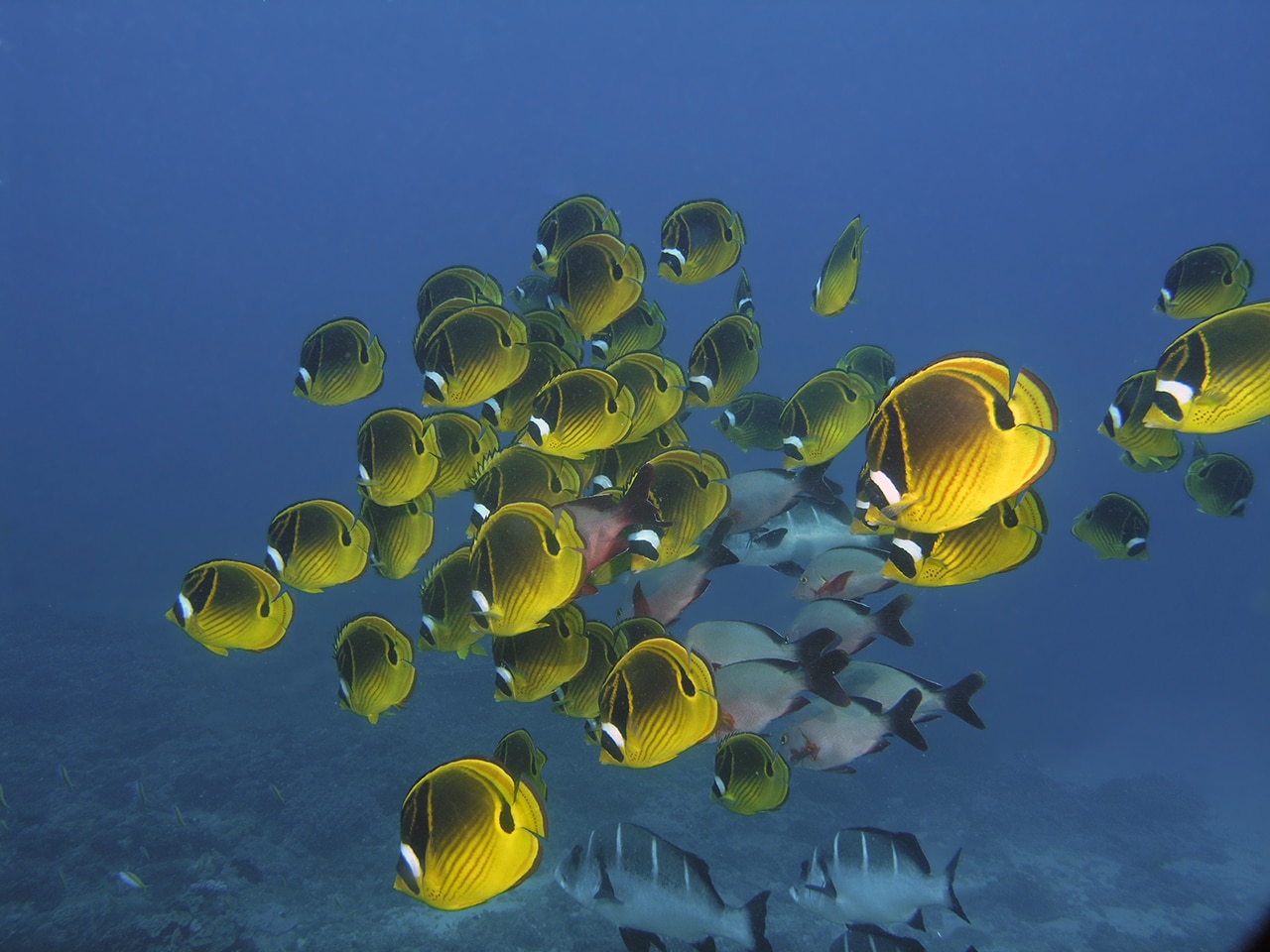
Tourists will stop coming to Mauritius.
Divers and snorkelers will be diving in Bali, in Indonesia and Malaysia, in Raja Ampat, in the Red Sea, in the Maldives. These are countries where the governments protect their coral reefs and the fish that inhabit them. Their problem is in fact global warming, which is not a problem in Mauritius so far, and the Island might well become a last bastion of healthy coral growth if climate change accelerates.
Mauritius has an excellent conservation record, and this catastrophic loss of reef life can immediately be stopped by invoking the existing legislation to protect the reefs.
Reef fish are prolific breeders, and the reefs will quickly recover, given a chance.
The EU should police the catches of the Japanese trawlers.
The trawlers should be encouraged in the middle of the Indian Ocean where they should be monitored and allowed to take only what their licenses allow. Currently they have been seen fishing within the 30 nautical mile areas, where their impact is catastrophic.
I am filming millions of minute fish hatching on the reefs at the moment. If they are allowed to grow and breed, they will clean up the reefs.
The ocean looks after itself if it is left alone.
Words: Jill Holloway
Copyright Ocean Spirit – www.osdiving.com 2019
Images: Jill Holloway and Thomas Vignaud
News
Dive Worldwide Announces Bite-Back as its Charity of the Year

Over the next 12 months, specialist scuba holiday company Dive Worldwide will be supporting Bite-Back Shark & Marine Conservation with donations collected from client bookings to any one of its stunning dive destinations around the world. The independently-owned operator expects to raise £3000 for the UK charity.
Manager at Dive Worldwide, Phil North, said: “We’re especially excited to work with Bite-Back and support its intelligent, creative and results-driven campaigns to end the UK trade in shark products and prompt a change in attitudes to the ocean’s most maligned inhabitant.”
Bite-Back is running campaigns to hold the media to account on the way it reports shark news along with a brand new nationwide education programme. Last year the charity was credited for spearheading a UK ban on the import and export of shark fins.
Campaign director at Bite-Back, Graham Buckingham, said: “We’re enormously grateful to Dive Worldwide for choosing to support Bite-Back. The company’s commitment to conservation helps set it apart from other tour operators and we’re certain its clients admire and respect that policy. For us, the affiliation is huge and helps us look to the future with confidence we can deliver against key conservation programmes.”
To launch the fundraising initiative, Phil North presented Graham Buckingham with a cheque for £1,000.
Visit Dive Worldwide to discover its diverse range of international scuba adventures and visit Bite-Back to learn more about the charity’s campaigns.
MORE INFORMATION
Call Graham Buckingham on 07810 454 266 or email graham@bite-back.com
Gear News
Scubapro Free Octopus Promotion 2024
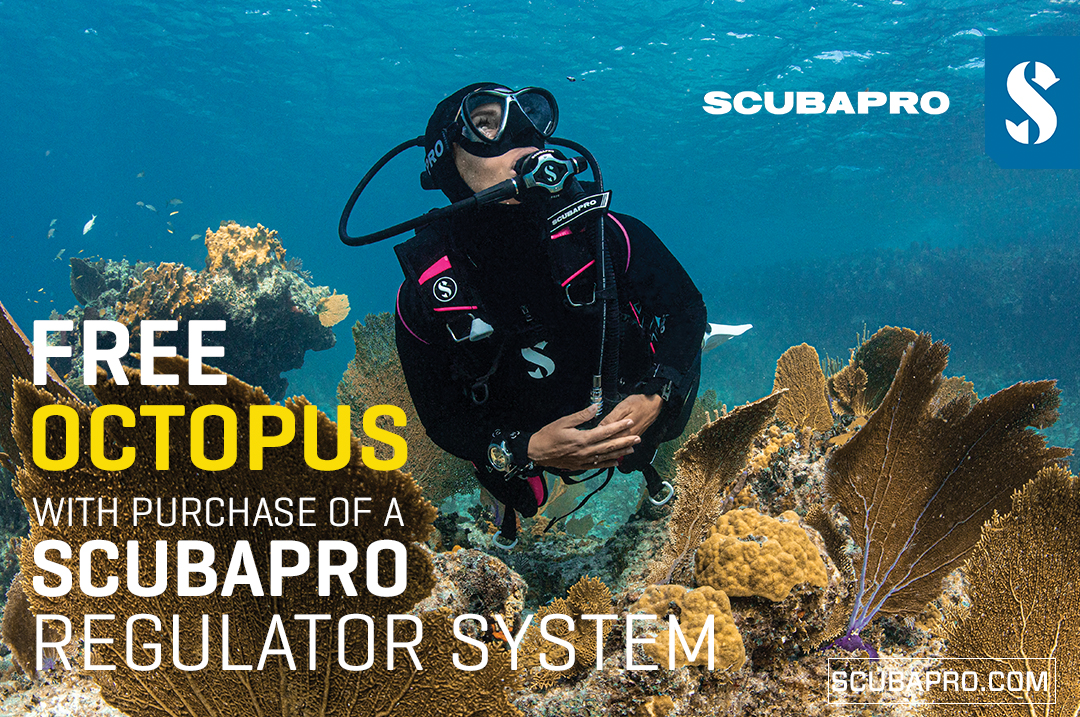
Free Octopus with every purchase of a SCUBAPRO regulator system
Just in time for the spring season, divers can save money with the FREE OCTOPUS SPRING PROMOTION! Until July 31st SCUBAPRO offers an Octopus for free
with every purchase of a regulator system!
Get a free S270 OCTOPUS with purchase of these combinations:
MK25 EVO or MK19 EVO with A700
MK25 EVO or MK19 EVO with S620Ti
MK25 EVO or MK19 EVO with D420
MK25 EVO Din mit S620Ti-X
Get a free R105 OCTOPUS with purchase of the following combinations:
MK25 EVO or MK19 EVO with G260
MK25 EVO or MK17 EVO with S600
SCUBAPRO offers a 30-year first owner warranty on all regulators, with a revision period of two years or 100 dives. All SCUBAPRO regulators are of course certified according to the new European test standard EN250-2014.
Available at participating SCUBAPRO dealers. Promotion may not be available in all regions. Find an authorized SCUBAPRO Dealer at scubapro.com.
More information available on www.scubapro.com.
-

 News3 months ago
News3 months agoHone your underwater photography skills with Alphamarine Photography at Red Sea Diving Safari in March
-

 News3 months ago
News3 months agoCapturing Critters in Lembeh Underwater Photography Workshop 2024: Event Roundup
-

 Marine Life & Conservation Blogs3 months ago
Marine Life & Conservation Blogs3 months agoCreature Feature: Swell Sharks
-

 Blogs2 months ago
Blogs2 months agoMurex Resorts: Passport to Paradise!
-

 Blogs2 months ago
Blogs2 months agoDiver Discovering Whale Skeletons Beneath Ice Judged World’s Best Underwater Photograph
-

 Gear Reviews2 weeks ago
Gear Reviews2 weeks agoGEAR REVIEW – Revolutionising Diving Comfort: The Sharkskin T2 Chillproof Suit
-

 Marine Life & Conservation2 months ago
Marine Life & Conservation2 months agoSave the Manatee Club launches brand new webcams at Silver Springs State Park, Florida
-

 Gear Reviews3 months ago
Gear Reviews3 months agoGear Review: Oceanic+ Dive Housing for iPhone
















